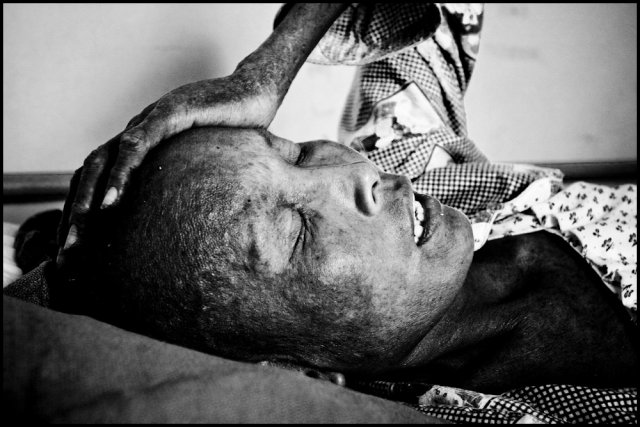
Despite pledges at the recent Millennium Development Goals (MDG) summit to combat HIV/AIDS, malaria and other diseases, there has been a constant battle across the global South for access to vital antiretroviral HIV/AIDS treatments and antibiotics for malaria and tuberculosis (TB).
One of the greatest challenges in accessing high-quality and affordable medicines is the collusion between rich governments and pharmaceutical giants.
Expensive pharmaceutical HIV/AIDS antiretroviral drugs are patented. Patents are monopolies over the contents, composition, development and manufacture of any original medicine.
Trade agreements released over recent weeks contain huge provisions to transnational pharmaceutical companies and increase the power of patents, a trend that has been mirrored in Australia and the world over.
The Anti-Counterfeiting Trade Agreement (ACTA) was released on November 15 and includes state members such as Australia, Canada, the European Union, Japan, Switzerland and the US. It makes the unauthorized development of drugs patented in those countries a criminal offence.
The effects will be felt worst in Third World countries like India, whose generic drug market provides affordable medicines to many of the poorest nations.
Medical humanitarian organisation Medecins Sans Frontieres (MSF) buys more than 80% of its AIDS medicines from India to treat more than 140,000 people in more than 60 countries.
It also buys 25% of its antibiotics and TB/malaria medicines to supply its clinics.
MSF said ACTA was too broad and would hurt access to medicines and open the door for abuse.
In an open letter to the European Trade Commissioner on November 8, MSF said: “Suppliers of active pharmaceutical ingredients, distributors, retailers, NGOs such as MSF who provide treatment and funders who support health programs will all be at risk of severe penalties, including imprisonment.
“This will deter anyone involved in the production, sale and distribution of affordable generic medicines.”
The Global Fund to fight HIV/AIDS, tuberculosis and malaria is one of the only organisations committed and able to provide the global financing needed to achieve this aim.
So far, the Global Fund has provided US$19.3 billion in 144 countries to “support large-scale prevention, treatment and care programs against the three diseases”.
Yet, at the Global Fund’s third replenishment conference in New York over October 4-5, “donor” countries — including the US, Australia and much of the EU — chose to cut funding.
Just a month later, world leaders at the G8 conference in Seoul admitted they would “fall short” of “halting and reversing” the spread of AIDS, a pledge made only five years ago, and blamed the failure on the financial crisis.
Free trade agreements arising at the same time as these token summit pledges show the criminal role pharmaceutical corporations play in keeping the world’s poor sick.
MSF said US-negotiated free trade agreements, like that between the US and Australia in 2005, set a dangerous precedent for future agreements with poorer countries by undermining “members’ rights to prioritise public health over commercial interests”.
This can be seen in the ACTA and EU-India agreements. “ACTA’s real effect will be to protect the commercial interest of companies”, MSF said.
Patent rights are enforced, while patients’ rights are destroyed.
There are 22 million people carrying HIV/AIDS in sub-Saharan Africa. Epidemics of malaria and tuberculosis have contributed to reducing life expectancy in many of these nations to below 50 years.
Similarly, viruses that are universally vaccinated against in the first world — such as Hepatitis B — have led to widespread chronic illness and epidemics of liver cirrhosis and cancer in many African Asian countries.
The damaging dual impact of rich countries’ consistent under-funding of healthcare programs and of monopolised life-saving pharmaceuticals can be seen in attacks on the Indian generic drug market.
India is under pressure to sign an agreement with the EU that would force the Indian government to expand the protection from competition enjoyed by big pharma in most of the developed world.
One example is the EU’s demand that India provide transnational pharmaceutical companies with “data exclusivity”. This would mean generic drug makers cannot use clinical trials by the big companies — protecting the giants from normal price competition.
Pharmaceutical companies have also attacked India. In 2006, Swiss-based Novartis took the Indian government to court over its patents act.
It wanted more protection for its patented products. That is, it wanted the government to stop companies from reproducing generic medicines at cheaper prices.
The high court threw the case out in 2007, but failed to strengthen the act with adequate protection against further attack.
The effects of governments enforcing the “intellectual property” of multinational corporations and dismissing humanitarian needs are devastating.
In Malawi, for example, MSF said the government recently applied for a Global Fund program to help combat the transmission of HIV from pregnant women to their children.
MSF said the current rate of mother-to-child infections was 35%. The program, if implemented, could have brought the rate down to as low as 2%.
As a result of underfunding: “The program… may no longer be possible”, said MSF.
“Efforts in Kenya and South Africa to provide treatment to all who require it will be made nearly impossible without a well-funded Global Fund.”